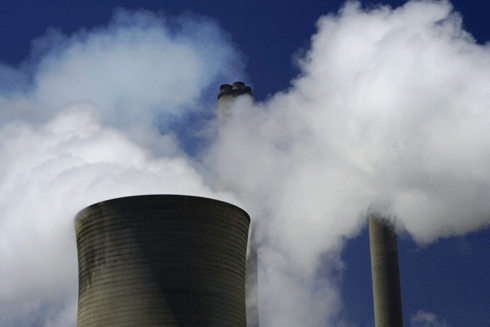Published: 26 September 2011
Renewable energy sector to benefit from wind-speed research
Craig Macaulay
While some recent international studies have shown a decrease in wind speeds in several parts of the globe, including Australia, more recent results from CSIRO show that Australia’s average wind speed is actually increasing.

|
|
The ability to accurately quantify long-term variations in wind speeds is essential to the viability of Australia’s wind power sector. Credit: Gregory Heath
|
CSIRO scientists have analysed wind speed observations to understand the causes of variations in near-ground-level wind and explore long-term wind speed trends.
Accurate estimates of long-term trends provide a useful indicator for circulation changes in the atmosphere and are invaluable for the planning and financing of sectors such as wind energy, which need to map risk management under a changing climate.
‘We have a good picture of wind energy availability across Australia from previous CSIRO wind mapping and, with the growth of wind farms, there is an emerging need to understand how climate change can affect the wind resource,’ says Dr Alberto Troccoli, lead author of a recent paper published in Journal of Climate. 1
‘Wind power production is expected to increase greatly over the coming years and the associated electricity system will be subject to variations of several hundred megawatts – depending on wind availability.
‘The ability to quantify with accuracy these long-term variations is essential to the sector from an economic point of view.’
Dr Troccoli said that, averaged across Australia over 1989–2006, wind speeds measured at a height of 10 metres had increased by 0.69 per cent per annum, compared to a decline of 0.36 per cent per annum for wind speeds measured at 2m height.
‘The potential for increasing the efficiency of energy operations by using quality weather and climate information is therefore apparent and one of the first steps is the standardisation of wind recording stations.
‘Wind observations, like other meteorological variables, are sensitive to the conditions in which they are observed – for example, where the instrumentation sits relative to topographical features, vegetation and urban developments.’
The team found that the wind speed trends over Australia are sensitive to the height of the station, with winds measured at 10m displaying an opposite and positive trend to those reported by a previous study, which analysed only winds measured at 2m.
Light winds measured at 10m, a height that represents better the free atmospheric flow, tend to increase more rapidly than the average, whereas strong winds increase less rapidly than the average winds. Light and strong wind measured at a height of 2m tend to vary in line with the average winds.
‘Our work shows a number of challenges with the consistency of the observations during their period of operation and between sites across Australia,’ adds Dr Troccoli.
‘The quality of future wind observational datasets will depend on having consistency between sites, particularly with respect to measurement procedure, maintenance of instrumentation, and detailed records of the site history.’
He said the work has implications for a variety of sectors beyond wind energy including building construction, coastal erosion, and evaporation rates.
The conjunction of energy and meteorology is the central theme of the International Conference Energy & Meteorology on the Gold Coast in November.
Read Dr Troccoli’s thoughts on What’s the energy forecast? Bringing meteorology and generation together in the online forum, The Conversation.
1 A. Troccoli, K. Muller, P. Coppin, R. Davy, C. Russell and A. Hirsch (2011) Long-term wind speed trends over Australia. Journal of Climate, doi: 10.1175/2011JCLI4198.1





